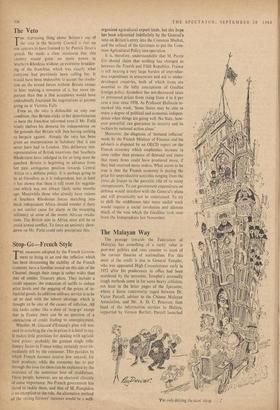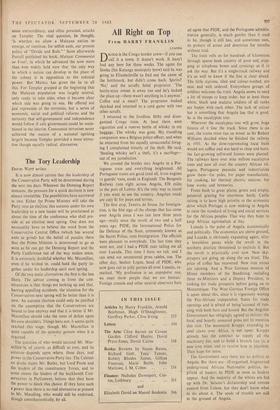The Malayan Way
The passage towards the Federation of Malaysia has something• of a rarity value in post-war politics and runs counter 'to most of the current theories of nationalism. For this most of the credit is due to General Templer, who was appointed High Commissioner early in 1952 after his predecessor in office had been murdered by the terrorists. Templer's unusually tough methods came in for some heavy criticism, not least in the letter pages of the Spectator, where a fierce controversy raged between Dr. Victor Purcell, adviser to the Chinese Malayan Association, and Mr. A. D. C. Peterson, then head of the information services in Malaya, supported by Vernon Bartlett. Purcell launched `I'm only driving the duet' thing.. . .' some extraordinary, and often personal, attacks on Templer. The vital question, he thought, 'is whether we allow a Malayan nation to emerge, or continue, for selfish ends, our present policy of "Divide and Rule."' Soon afterwards Purcell published his book, Malaya: Communist or Free?, in which he advanced the now more than ever widely held view that 'the only way in which a nation can develop in the place of the colony is in opposition to the colonial power. But Malays has given the lie to all this. For Templer grasped at the beginning that the Malayan population was largely neutral, only ready to take sides when it became clear which side was going to win. He offered not just repression of the terrorists, but a series of economic, social and political reforms and the certainty that self-government and independence would follow if safe government could be main- tained in the interim. Communist terrorism never achieved the stature of a national uprising largely because Templet provided a more attrac- tive though equally radical, alternative.







































 Previous page
Previous page